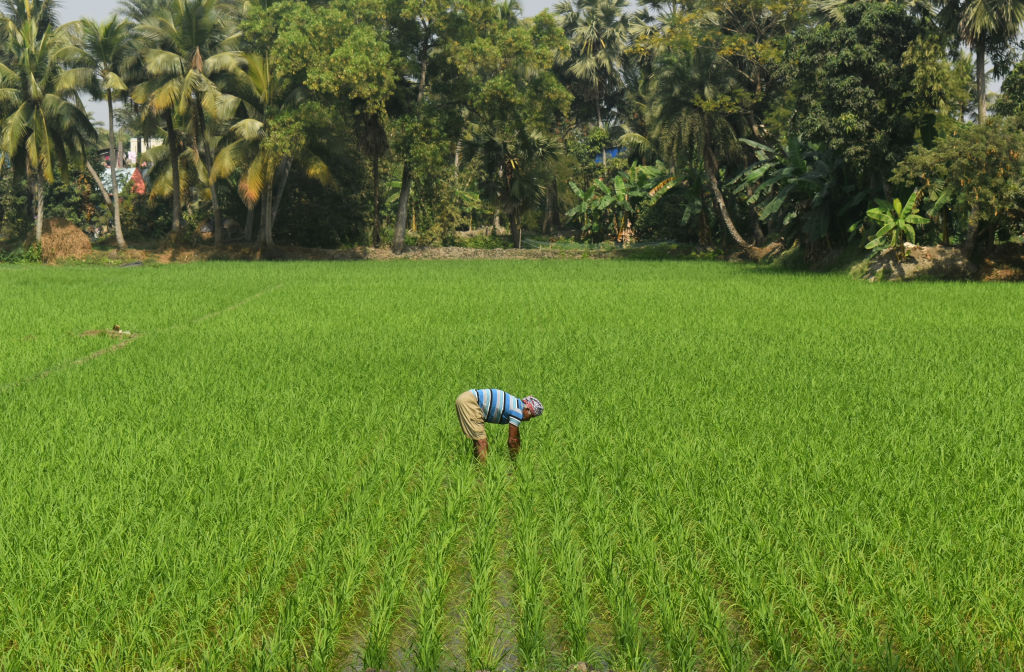The Union Cabinet approved the National Mission on Natural Farming (NMNF), a standalone centrally sponsored scheme, on November 25, 2024, to be implemented until the 15th Finance Commission cycle (2025–26). The initiative aims to promote sustainable, climate-resilient agriculture and chemical-free food production, while reducing input costs and improving soil health.
With a proposed outlay of ₹2,481 crore, which includes ₹1,584 crore from the Centre and ₹897 crore from states, the NMNF restructures the earlier Bharatiya Prakritik Krishi Paddhati (BPKP), which was implemented under the Paramparagat Krishi Vikas Yojana (PKVY) from 2020–21 to 2022–23. The PKVY, launched in 2015–16, was the government’s first comprehensive programme to promote organic farming, with ₹2,170.30 crore released under it so far.
The mission’s key targets include:
- Bringing 7.5 lakh hectares under natural farming in 15,000 clusters.
- Setting up 10,000 Bio-Input Resource Centres for farmers.
- Generating awareness among one crore farmers.
- Introducing a simple certification system and a common national brand for chemical-free produce.
Natural Farming (NF) integrates livestock (preferably indigenous cows) with diverse cropping systems rooted in traditional Indian practices. It focuses on in-situ organic matter generation, biomass mulching, multi-cropping, and fostering biodiversity to enhance soil health and climate resilience. Several states, including Andhra Pradesh, Karnataka, Himachal Pradesh, Gujarat, Uttar Pradesh, and Kerala, have already created successful models.
With the NMNF, the government hopes to replicate such models nationwide, blending traditional farmer knowledge with scientific approaches to build a decentralised, sustainable farming ecosystem.
Implementation Progress
The NMNF has moved quickly since its approval. Scheme guidelines were issued on December 26, 2024, and Annual Action Plans for 33 States and Union Territories (UTs) have been approved. In FY 2024–25, ₹177.78 lakh was released to states and UTs.
- As of March 28 2025, around 70,021 Krishi Sakhis have been trained in soil health and NF practices.
- By July 22, 2025, over 10 lakh farmers have been enrolled.
- More than 3,900 scientists, Farmer Master Trainers (FMTs), and officials have received training.
- About 28,000 Community Resource Persons (CRPs) have been identified.
- Around 806 training institutions, including Krishi Vigyan Kendras (KVKs), agricultural universities, and local NF institutions, are engaged.
- At least 1,100 model farms have been developed for hands-on training.
- Around 7,934 BRCs have been identified, with 2,045 already operational.
The mission also offers an output-based annual incentive of ₹4,000 per acre for two years (up to one acre per farmer) to cover training, livestock upkeep, and preparation of bio-inputs. Additionally, certification is being implemented under the Participatory Guarantee System (PGS)-India, managed by the National Centre for Organic & Natural Farming (NCONF) in Ghaziabad.
Officials said the NMNF is a decentralised, farmer-led approach that blends traditional knowledge with scientific methods to create a robust support ecosystem, enabling a slow but sustained transition from chemical-intensive farming to nature-based practices across India.
The NMNF brings a transformative shift in India’s agricultural sector. Institutionalising traditional, low-input farming within a modern digital and policy framework provides farmers with a viable alternative that is ecologically sound, economically feasible, and socially inclusive. With strong training networks, transparent monitoring, and financial incentives, the mission is positioned to play a pivotal role in building a sustainable future for Indian agriculture.














